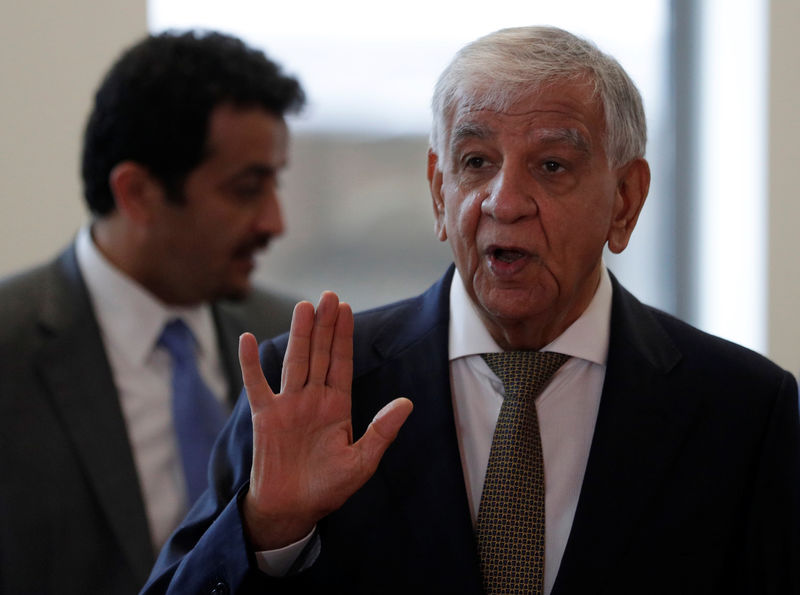By Ahmed Rasheed
BAGHDAD (Reuters) - Iraq plans to increase the production and exports of light crude oil to 1 million barrels per day in 2019, as part of its strategy to boost state revenue, its oil minister Jabar al-Luaibi said on Sunday.
The light crude oil is a new grade with an API gravity of around 34-43, while the current Basrah Light grade that Iraq exports will be renamed Basrah Medium, one Iraqi industry source familiar with the matter said.
"This (decision) will boost Iraq's position in the global oil markets by producing three crude grades: light, medium and heavy," al-Luaibi said in a statement.
Iraq is OPEC's second-largest producer after Saudi Arabia and pumps around 4.6 million bpd. The majority of its crude exports go to Asia.
The bulk of Iraq's oil is exported via the southern terminals, which account for more than 95 percent of the OPEC producer's state revenues. Iraq exported 3.583 million bpd from the southern ports on Gulf in August.
Iraq's crude exports have risen in recent months as shipments drop from Iran, OPEC's third biggest producer, which is facing renewed U.S. sanctions.
Iraq decided to split its oil supply into two grades in 2015 to resolve quality issues. It offered Basrah Heavy produced from southern oilfields separately from its traditional Basrah Light crude.
The shift by Iraq's state-oil marketer SOMO was widely supported by crude buyers who until then had to deal with variations in the quality of a blend of Basrah Light with heavier, high-sulfur content oil produced from newer fields.
Selling Basrah Heavy and Basrah Light separately increased buyers' confidence in quality, and cut the time ships spent waiting for different crudes to reach terminals and that had added to costs.
But the current Basrah Light grade, was itself a blended grade using crude from different oilfields, which has also led to varying qualities in different cargoes, the source said.
Now Iraq will sell the current Basrah Light grade as Basrah Medium with a lower API.
The volumes for the new light crude will come from the Luhais, Tuba, and Artawi southern oilfields, an Iraqi oil official familiar with the project's execution told Reuters.
"We expect rising demand from Asian refiners for the low-sulfur Basrah light crude in 2019. Meeting demands of buyers will help Iraq win more customers in the Asian markets."

Iraq, which relies on oil to generate most of its budget revenues, is seeking to increase crude production capacity to 7 million bpd by 2022 from 5 million bpd now.